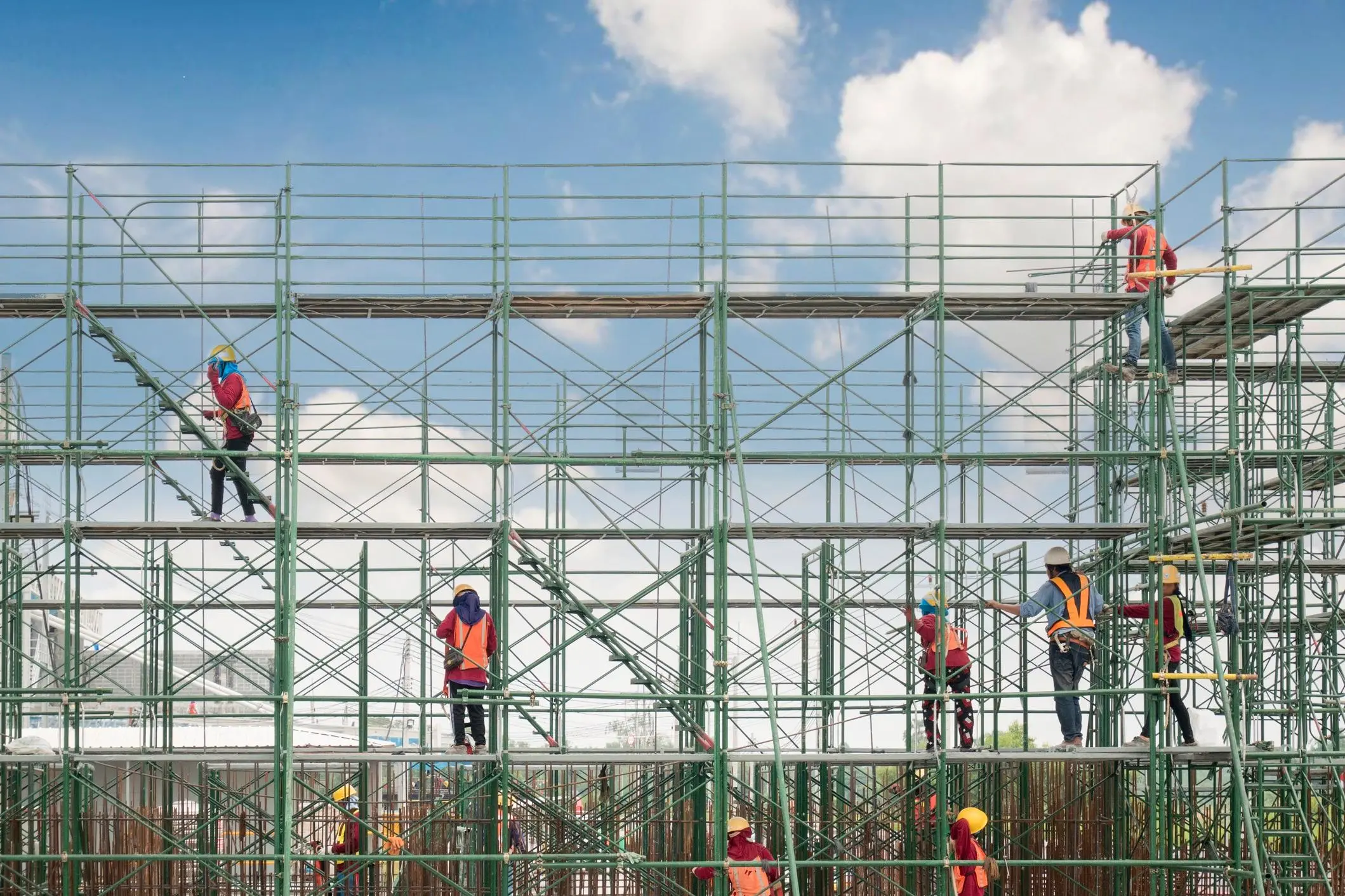PHOTO
China International Contractors Association (CHINCA) is looking at collaborating with its peers across the region as part of the Chinese government's multi-billion dollar Belt and Road Initiative (BRI), its chairman said.
CHINCA is the national organisation formed by Chinese international project investors, contractors, labour service companies and related service providers, according to its website.
Fang Qiuchen, who is also the Secretary-General (Mainland) of the Belt and Road Business and Professional Services Council, told Thomson Reuters Projects that CHINCA has established ties with more than international contractor associations from different parts of the world, including the likes of European Contractors Association and the Asia Pacific Contractors Association.
He continued: "Hence, we are really keen to explore various collaborations with the UAE Contractors Association as part of BRI. We wish to meet up with them and truly seek further areas of co-operation where we can jointly work with them on different projects in the UAE. This is also the pragmatic way forward."
In April, Dubai-based daily Gulf News reported that the UAE signed $3.4 billion worth of new deals as part of BRI including a $2.4 billion Traders Market in Dubai opposite the Expo 2020 site to store and ship Chinese products from Jebel Ali to the world and a $1 billion Vegetable Basket project for importing, processing, packaging, storage and re-export of agricultural, livestock and fish products.
Qiuchen said that as part of the collaboration roadmap, CHINCA's members meet up at the annual International Infrastructure Investment and Construction Forum in Macau.
"It is one of the biggest international events and we really want that the UAE Contractors Association become a key part of this forum," he said on the sidelines of two-day business programme organised in Dubai by a joint mission of the Commerce and Economic Development Bureau of the Hong Kong Special Administrative Region (HKSAR) and the Ministry of Commerce of the People's Republic of China.
The event saw the signing of Investment Promotion and Protection Agreement (IPPA) between the UAE and Hong Kong, according to a report by the UAE's official news agency WAM.
So would CHINCA look at setting up an office in the region? Quichen pointed out that Chinese construction companies have been actively participating in different projects within this region over the last 20 years.
He continued: "If we look at our current delegation, we have over 20 key players from the projects sector and I could definitely say that two-thirds of them have already established their offices here. I am very confident that more and more companies will come over to establish their headquarters in Dubai. In terms of geography, it is a good place for our members - not just because it is the centre to Africa but also to the Middle East and Eurasia."
CHINCA comprises of more than 1,500 members, among which, over 1,000 are engaged in international project engineering, contracting, and investments, representing about 90 percent of the entire industry business value and operating in more than 190 countries and regions around the world.
Qiuchen said that some of the key CHINCA members are already involved in industrial projects and other sectors in the region.
He said" "Our members will also look at being a crucial part of industrialisation plans announced by the UAE. So we are [also] going beyond the infrastructure segment. In future, we will also bring in more and more players in the industry parks segment."
In July 2018, Hong Kong-based English language daily South China Morning Post reported that China has introduced an "industrial, park-port interconnection, two-wheel, and two-wing approach" plan, which would include Chinese-developed industrial estates in Oman, Saudi Arabia, and the UAE.
Oman Wanfang, a subsidiary of Wanfang China, is developing the 12.72-square-kilometre China-Oman (Duqm) Industrial Park under BRI at a investment of about $9.7 billion, Chinese state news agency Xinhua reported in May.
Also, Reuters reported in May that China's East Hope Group is evaluating plans to invest $10 billion in an industrial zone in the UAE under aegis of BRI.
The CHINCA chief also highlighted the importance assigned to sustainability by members involved in international projects.
"We chose to go beyond green building standards and decided to align with the United Nations Sustainability Goals (SDGs)," he said.
In 2017, the Emerging Market Multinationals (EMM) Network for Sustainability (as part of the Emerging Market Sustainability Dialogues (EMSD)) announced that it worked with CHINCA to develop 'The Guidelines of Sustainable Infrastructure for Chinese International Contractors (SIG),' which covers five major phases of infrastructure development, namely funding, planning and design, building, operation and maintenance, and closure.
"For the past two years, SIG outlined the gold standards that all Chinese international contractors must mandatorily follow when they participate in any international infrastructure project within the BRI countries," he explained.
China's overall score was 70.1 on the global index, according to the UN's SDG Index and Dashboards 2018 Report.
(Reporting by Sona Nambiar; Editing by Anoop Menon)
(anoop.menon@refintiv.com)
Our Standards: The Thomson Reuters Trust Principles
Disclaimer: This article is provided for informational purposes only. The content does not provide tax, legal or investment advice or opinion regarding the suitability, value or profitability of any particular security, portfolio or investment strategy. Read our full disclaimer policy here.
© ZAWYA 2019





















